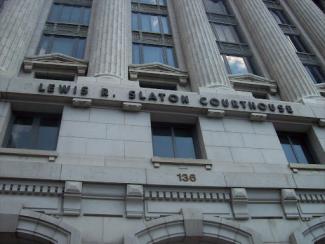
Many are learning about Fulton County District Attorney Fani Willis after her criminal investigation into former president Donald Trump. Unsurprisingly, she was met with anti-Blackness and misogyny from right-wing media outlets and, of course, Trump himself.
But has her work as a prosecutor outside this case also been anti-Black?
Willis’ father was a Black Panther and defense lawyer. She frequently evoked a Malcolm X quote on truth and justice upon taking office. But her proximity to the Black radical tradition contrasts with her advocating to use rap lyrics as evidence in court and recusing herself from police violence cases.
Willis also received backlash for targeting Black Atlanta public school teachers with RICO charges, which are used to target organized crime, and could send them away for several years in prison.
Gerald A. Griggs, president of the Georgia N.A.A.C.P., believes Willis is “a phenomenal prosecutor,” but he also believes “she’s drinking the Kool-Aid,” he told The New York Times, saying she is more focused on incarcerating poor Black people than addressing social issues. However, others guard Willis from criticism, including former client YSL Mondo, who said, “It’s other people behind her that’s pulling strings.”
Ironically, this stance still supports why her investigation into Trump, though righteous, entertaining, or long-overdue to many, doesn’t necessarily make her a Black hero. It actually implies she has less power and agency.
An inherently anti-Black criminal legal system embraces individual and collective abuse of power. And for Black authority figures hoping to ascend in their careers, it can, unfortunately, be no different.
Because just as the system’s power can be used to punish our oppressors, it’s designed to oppress us, too.